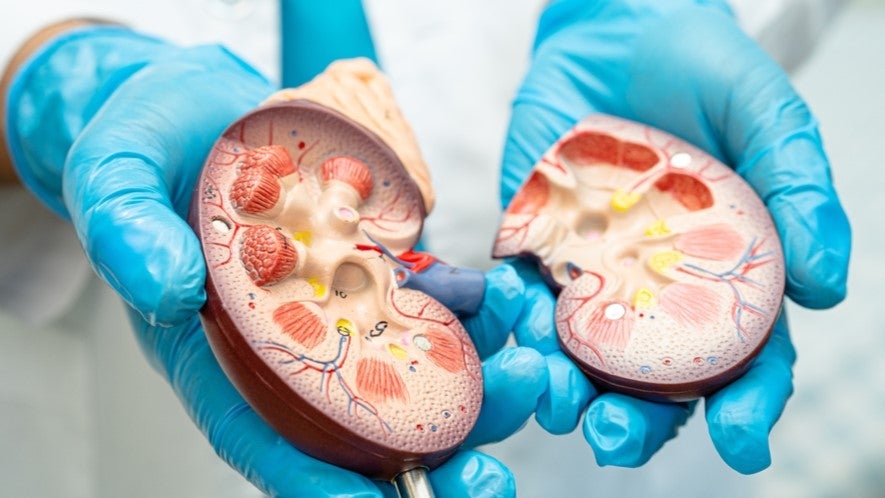The US Food and Drug Administration (FDA) has converted the accelerated approval for Travere Therapeutics’ Filspari (sparsentan) to full approval in primary IgA nephropathy (IgAN).
The US regulatory agency also removed the specific requirement of a urine protein-to-creatinine ratio (UPCR) of over 1.5g/g for the drug’s use, thereby, broadening the therapy’s label in IgAN. The agency approved Filspari to slow kidney function decline in adults with primary IgAN who are at risk of disease progression.
The approval does come with a boxed warning for hepatotoxicity and birth defects. The boxed warning restricts Filspari availability under a Risk Evaluation and Mitigation Strategies (REMS) programme. As part of the warning, the FDA requires kidney function monitoring in patients before starting Filspari, followed by monthly testing for the first year and every three months during treatment.
Earlier, Travere had sought the US FDA’s approval for sparsentan as a treatment for focal segmental glomerulosclerosis (FSGS), a rare kidney disease. However, the US agency requested additional data to support the supplemental new drug application (sNDA) in FSGS and said the two-year results from the Phase III DUPLEX study were insufficient to support the sNDA.
The US FDA’s additional data request forced Travere to implement cash-saving measures in December 2023. The company fired 20% of its staff and announced its intention to focus its resources Filspari’s launch in IgAN.
Filspari is a dual endothelin angiotensin receptor antagonist. It received a US FDA accelerated approval to reduce proteinuria in adults with primary IgAN at risk of rapid disease progression with a UPCR of over 1.5g/g in February 2023. The accelerated approval was based on the results from the Phase III PROTECT trial (NCT03762850), which met its primary UPCR-related endpoint. Proteinuria reduction is a key surrogate marker for delaying kidney failure and is often used to support accelerated regulatory approvals in IgAN clinical trials. However the study failed to hit the confirmatory secondary endpoint measuring kidney function.
The full approval is based on a modified intent-to-treat analysis of the 404 patients enrolled in the PROTECT trial. This modification allowed the company to evaluate data from patients who discontinued treatment, which was excluded in the previous analysis.
The modified analysis showed that the study met its secondary endpoint by Filspari reducing the rate of decline in kidney function from baseline to Week 110, compared to control. The mean estimated glomerular filtration rate (eGFR) slope from baseline to Week 110 was -3.0 mL/min/1.73 m2/year for Filspari, compared to -4.2 mL/min/1.73 m2/year for the standard of care irbesartan.
Filspari’s competitors in the IgAN treatment space are Novartis’s Fabhalta (iptacopan), atrasentan and zigakibart. Fabhalta is an alternative complement pathway inhibitor. Last month, it received accelerated approval from the US FDA for reducing proteinuria in IgAN. Novartis acquired atrasentan and zigakibart as part of $3.2bn Chinook Therapeutics deal. In May, Novartis shared positive data from the Phase III trial of atrasentan in IgAN showing that the therapy reduced proteinuria by 36.1% at 36 weeks.









